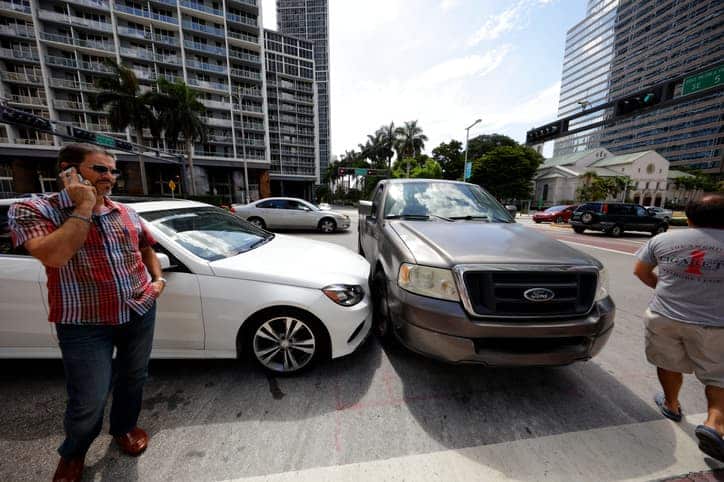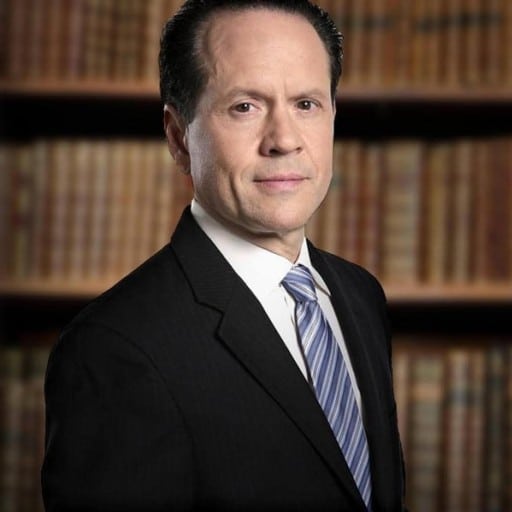Car Accidents Caused by Seizures and Medical Conditions

When someone makes a driving error that causes a driving accident, the driver may be legally liable to the victims for their injuries. However, what happens when the accident occurs because of a medical emergency? In Florida, the answer isn’t always immediately apparent.
Here’s what you should know about medical condition crashes, including seizure while driving accidents, from our Miami car accident lawyers.
Can a Person Who Has Seizures Drive?
If you live in Florida, you can still operate a vehicle even if you have seizures. However, you must meet specific medical and legal requirements set by the Florida Department of Highway Safety and Motor Vehicles.
Under state law, you must report medical conditions, including seizures or epilepsy, that might affect your ability to safely operate a vehicle.
You’ll need to undergo an evaluation by a licensed physician, and have a medical evaluation form (HSMV 72115) submitted to the Florida Highway Safety and Motor Vehicles Department.
If your physician clears you, you’ll likely receive a restricted license that indicates you’re only allowed to drive under certain conditions. This might include short distances or only during daylight hours.
If you have a seizure while you are licensed, you must stop driving immediately and report it. Your driver’s license will be suspended until you get medical clearance. If you don’t agree with the decision, you can request a hearing to appeal.
What Happens When a Medical Condition Causes a Car Accident?
When a medical condition, like a seizure, causes a car accident, the person who has the medical event may or may not be responsible to the victim for their injuries.
Whether the person with the medical issue has legal liability to the victim depends on whether the event was foreseeable. State laws may impact what happens when a medical condition causes a car accident.
Medical Emergency Car Accident
A medical emergency car accident is an accident that occurs because of a sudden medical event. The emergency causes the driver to lose control of the vehicle and cause an accident.
Whether the driver is responsible for a medical emergency car accident depends on state law. In most states, the driver is responsible if the accident was reasonably foreseeable because of advanced knowledge of the medical condition.
Common Medical Conditions That Cause Car Accidents
The general rule is that Florida is a no-fault state. That means that each party is responsible for their own damages for minor car accidents. When serious accidents occur, the party who causes the accident may be liable for their injuries.
The standard is negligence — when a driver doesn’t exercise a reasonable amount of care, they’re liable when serious injuries occur. Generally, a driving error on the road amounts to negligence.
However, when the driving mistake happens because of a medical condition, the answer isn’t so clear. To be legally liable to victims for their injuries and damages, the medical event must have been reasonably foreseeable.
The driver must have had some indication that the medical event was a possibility. A driver isn’t liable to victims for unforeseen events. Instead, they’re only responsible if they knew that the medical event was a reasonable possibility.
Laws for Medical Event Car Accident Liability
The Florida standard for medical event car accident liability is whether the accident was reasonably foreseeable.
Once the victim shows that the crash occurred because of the negligent conduct of the other driver, it’s up to the other driver to present the sudden medical event defense.
The steps to proving the defense are:
- A driver suffers a loss of consciousness or incapacitation.
- The loss of consciousness or incapacitation doesn’t occur because of negligent conduct on the part of the driver. In other words, the driver didn’t have any reason to know that the medical event was a possibility.
- The loss of consciousness was sudden. The driver couldn’t have seen it coming.
- There was no reason that the driver should have known to take action to prevent the loss of consciousness. They may not be aware of any facts that would make a reasonable person think the accident was a possibility.
If they can prove their defense, the driver is relieved of legal liability for the accident. The driver must prove every element of the medical emergency defense.
Who Decides If the Medical Event Defense Applies to a Car Accident?
It’s up to the jury to decide if the medical event defense applies to a car accident. Whether the medical event occurred, and whether it was foreseeable, depends on the facts of the case. Often, deciding the case requires a detailed look at the medical evidence, the testimony of the parties, and how the accident occurred. Ultimately, the jury makes the final decision of whether the driver has met the elements of the medical event defense.
Feagle v. Purvis and the Medical Emergency Exception
One well-known Florida case that explains how the medical emergency exception works is the Feagle v. Purvis case. The defendant had a known heart problem. He declined diagnostic testing for the heart problem on six different occasions. However, the doctor didn’t place any restrictions on the defendant driving.
One day, the defendant drove a boat. While driving, he suffered a heart attack and died. The boat flew out of control and hit a victim.
The court used the Feagle case to explain the elements of a medical emergency defense. The court made clear that refusing diagnostic testing doesn’t automatically mean negligence. They said that it’s up to the jury to decide whether the medical defense applies.
Contact Our Florida Attorneys for Car Accidents
Have you been in a car accident? Was a medical event involved? You have rights.
Car accidents that involve medical events are complex. You must work diligently to gather the evidence and prepare the legal arguments to win your case. Our attorneys have more than three decades of experience fighting for car accident victims.
Let us fight for you until you have the compensation that you deserve. Don’t wait any longer.
Call us today for a free consultation about your case. (call Bernstein & Maryanoff, Injury Attorneys).
FAQ
What Happens If Someone Has a Seizure While Driving?
A seizure or any other medical episode while driving can cause a car accident. The driver who had a seizure could be held liable for resulting damages. Liability can be reduced or even waived if the seizure was unforeseeable, like a first-time episode.
Can a Person With Epilepsy Legally Drive?
Even if you suffer seizures or are diagnosed with epilepsy, you can still legally operate a vehicle. However, there may be restrictions on your driver’s license, like limited driving hours, driving only during the daytime, or driving only short distances, among others.
Are You Liable If You Have a Seizure While Driving or Seizure During a Car Accident?
Yes, you can be liable for damages caused by a car accident that occurred during a seizure.
What To Do if Someone Has a Seizure in a Car?
If you’re the driver, try to steer your vehicle to a safe stop. Try not to brake abruptly and call 911 if you’re able. If you’re a passenger, safely try to pull over the vehicle, turn off the engine, and keep the person experiencing the seizure secure.
Are Seizures a Common Cause of Fatal Car Crashes?
No. Seizures account for only a fraction of fatal car accidents that happen on our nation’s roadways.
Sources:
About the Author

Jack G. Bernstein, ESQ.
Jack Bernstein is a hard-working and highly motivated personal injury attorney in Miami, Florida with over three decades of experience. He is a strategist and idea person, with a genuine passion for helping his firm’s clients. If you’ve been injured, contact Jack Bernstein today for a free evaluation of your case.
